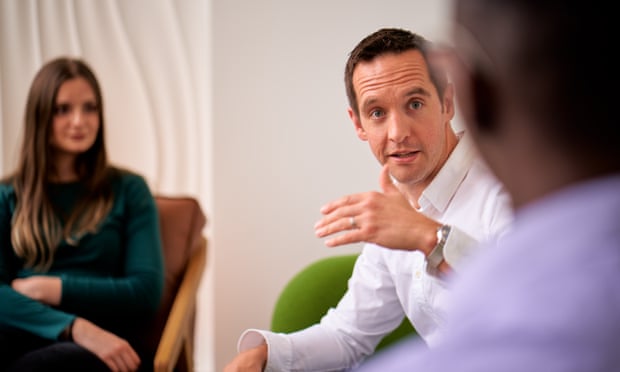Increased flexibility and competition: how fintech innovation helps businesses grow | At the forefront of fintech
A digital revolution is taking place in the payment area. Banks and financial institutions are investing in digital capabilities to meet the demand for faster, more streamlined and efficient transaction options. And the pace of innovation across the financial services technology industry makes it an exciting sector for software engineers to work in.
Mark Edwards, director of digital payments at Discover Financial Services, a leading digital bank in the US, describes how innovation around payments is driven by the cloud, API platforms (application programming interface) and other digital solutions. The company, which has an office in Farnborough where much of its payment technology development takes place, recently transitioned from virtual machine-based payment applications to the cloud via Red Hat OpenShift Container Platform (OCP).
“Moving from virtual machines on physical infrastructure to OCP has transformed our operations and given us greater flexibility – the platform allows us to develop, deploy and manage applications consistently across hybrid and cloud environments, as well as our physical data centers,” says Mark. . “It has increased our competitiveness and our ability to innovate, creating a workplace that helps us attract and retain the talent we need.”

Mark has spent his entire career in payments, including 17 years at Barclaycard. In 2019, he joined Discover, overseeing the development of card digitization systems, payments via Apple or Google phones, and providing the added security required by an increasingly digital payment space.
One of the biggest benefits of the transition to OCP has been a faster speed to market, thanks to a more efficient release and distribution, distribution of the latest or final version of a software application. “We have always been very good at the automation side of the process. Before OCP, we had a single release environment that our engineering teams had to share, which slowed things down. With OCP, our product team of six engineers can launch independently, says Mark.
The company’s ability to collaborate with digital players in the space, such as Apple, Google and Amazon, has also been significantly improved. “They have a vision, they’re agile, and they move quickly,” says Mark. “And you can’t work with them as effectively if you have a six-month time frame. OCP gives us a level of agility that matches theirs and allows us to work in sync with them.”
Moving to the cloud has also contributed to innovation for the company. “One of the benefits of a faster speed to market is that you can show someone a new product in a couple of weeks instead of six months, which increases their risk appetite,” he says. “It allows us to be bolder and therefore more innovative.”
The increased flexibility and agility and the transition to a product-centric organizational structure has had a positive impact on the workforce, empowering the engineering teams and giving them a sense of ownership of the products they work on. Competition for software engineering talent is fierce, and Discover’s new technology stack is helping it not only attract but retain the talent it needs.
“You can’t risk losing people by bringing in new people who get to do all the exciting things; we have to take everyone on this journey, says Mark. “We have some amazing engineers who have been with us for 10 years or more and had never touched OCP, so it was important to give everyone the right training and support, and the headspace to tackle it.”
Each member of the team had eight weeks of immersive training, not only on OCP, but on applying the new system to their work, and firmly embedding it in the company culture.

However, Mark says that there are lessons to be learned when moving from legacy systems to cloud systems, not least the importance of paying full attention to operational readiness. “Coding something in the cloud requires a different way of thinking compared to working with physical infrastructure.
“With physical infrastructure, the chance of the machine running your application exploding is incredibly unlikely. However, the cloud can literally just fall out, so you need a different mindset and more robust ways of handling everything,” he says.
Mark admits he has spent most of his career envisioning a digital payments world with fully empowered teams, modern technology stacks driving engineering excellence and rapid product release at the touch of a button. In the slower old world of finance, that vision seemed like a fantasy. But not anymore.
“Where we are now with digital payments at Discover is very, very close to making that vision a reality,” he says. “That’s why I’m so passionate about this business and the future of this industry.”
Find out more about the job opportunities and career progression offered by Discover Financial Services


